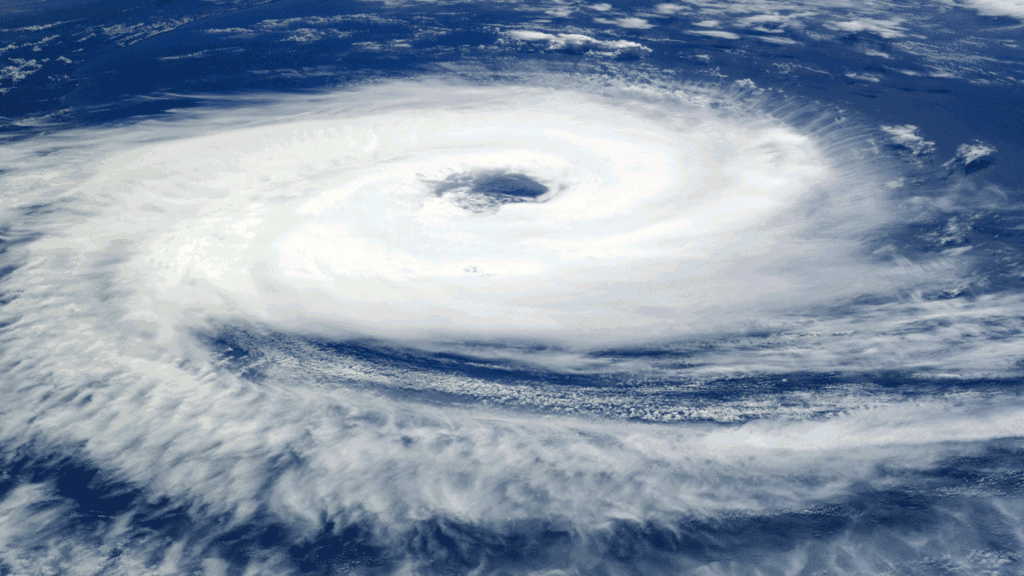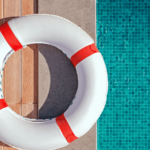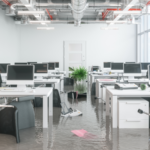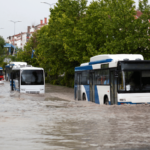
Want to print the original document?
As many of you are aware, hurricane season is right around the corner! The National Oceanic and Atmospheric Administration (NOAA) is predicting a 65% chance of an above normal hurricane season this year, urging residents in hurricane-prone areas to make their preparations now.
The Atlantic hurricane season begins on June 1st and ends on November 30th. The National Weather Service defines a hurricane as a “tropical cyclone with maximum sustained winds of 74 mph (64 knots) or higher. This means… NOW is the time to prepare!
Here is a quick reference guide for 2022 Hurricane preparedness and planning.
Pre-Landfall Preparation
Step one, create a hurricane emergency plan. Having an emergency plan is the key factor for your overall hurricane preparedness. Remember to always gather food, water, and medicine. Along with this, power outages during and after a hurricane can prevent you from accessing information online when you most need it. Preparing now can help keep you and your family safe.
Hurricane Plan Tips
- Collect copies of papers like the deed to your home, insurance paperwork, financial information, etc.
- Review your insurance coverages and keep updated photos and/ or a video inventory of your personal belongings.
- Collect phone numbers for your insurance company, doctor, veterinarian, and family members. Make sure they are all saved in your cell phone contacts.
- Identify your evacuation routes. Have an alternate route planned in case the first option is not navigable.
- Don’t forget special needs of family members such as a supply of critical prescription medications, if applicable.
- Make sure you have accounted for the needs of any household pets.
- Identify the safest place in your home to ride out a storm and make sure everyone knows the location.
Hurricane Emergency Tips
It’s vital to have a hurricane emergency kit handy! Your emergency kit should include items that can assist you and your family during a hurricane. Items such as batteries, flashlights, water, Band-Aids, and a battery-operated radio are important to have. In light of COVID, you may want to also include PPE such as masks, gloves, and hand sanitizer.
Family needs always vary. And, in the event of an emergency, it’s important to have the right supplies and tools on hand. Emergency prepared kits can help people survive after a disaster occurs. The first 72 hours after an emergency are incredibly important. Having the right survival gear helps people treat wounds, find help and more.
Evacuating During A Hurricane:
- Stay alert to storm advisories by using your NOAA weather radio.
- Enact your family disaster plan.
- Map out your route. Use travel routes specified by local authorities. Do not get on the road without a place to go.
- Fill your car with gasoline.
- Enact your pet plan. Before a storm threatens, contact your veterinarian or local humane society for information on preparing your pets for an emergency.
- Bring your disaster supply kit. Make sure you include important documents. Have enough food and water for at least 3 days. Bring flashlights for emergency lightning, since it’s likely that there will be power outages and most places will be running on backup power.
- Secure your home before leaving. Anchor loose objects or bring them inside and lock your doors.
- Have some cash handy. Following a hurricane, banks and ATMs may be temporarily closed.
- Notify your family and friends of your plans.
Post-Landfall
White hurricane preparedness is key, it’s also vital to understand what you must do post-hurricane so that you can begin re-building your life and your property as quickly as possible.
Safety Tips:
- Stay inside and do not drive. There may be damaged roadways, extended rainfall, and tornadoes.
- Check outside for downed or dangling power lines and report immediately to your power company. Do not attempt to touch or move anything near a power line.
- Keep an eye out for loose animals in your community.
- Avoid drinking tap water until you are sure it is safe.
- Open cabinets carefully as items may have shifted and are likely to fall off the shelves.
- Throw away spoiled food. If you are unsure whether something has spoiled, throw it away.
Power Safety
Several injuries and accidents occur after a hurricane as residents try to cope without having power. Portable generators, overloaded outlets, and damaged charging stations being used to power up devices can lead to electrical shock and even fires. Remember, generators need to be well ventilated and properly grounded. Extension cords must be in good working order- free of cuts and sprays.
Though technology plays a significant role in our lives, it’s important to think about how to remain safe while staying connected if there is no power after an event.
Property Damage Tips:
- Attempt to make temporary repairs such as placing tarps on damages roofs or boarding up broken windows in order to avoid additional damage.
- Hire only licensed, reputable repair companies and be sure to keep receipts for all repairs.
- Take photos or video of damage prior to cleanup.
- If possible, keep damages items so your claims adjuster can review them.





